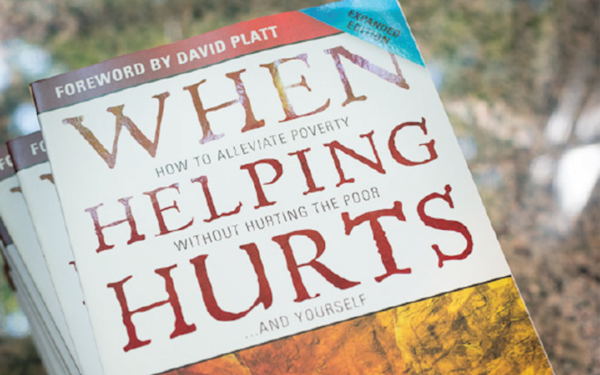We hope you’ve enjoyed reading “When Helping Hurts” along with our staff! If you missed last week’s discussion post, you can check it out here. This week we’re looking at Part 3: Doing Short-Term Missions Without Doing Long-Term Harm and Part 4: Getting Started on Helping Without Hurting.
Now that we know the general principles for helping and not hurting, it is important that we address specifically the ways that the American church can posture its short-term missions (or STMs) to help and not hurt. Short-term missions are defined as “trips ranging from one week to two years within North America or around the world.” Often times, churches and organizations will send a group into an outside country with the best intentions, but they do not realize that the cross-cultural engagement can cause serious harm in the way a community develops. Cultures around the world can differentiate in two important categories: concept of time and concept of self. STMs need to be aware that the North American concept of time favors efficiency in a limited window, whereas most cultures favor building relationships over an “unlimited” window of time. The same goes for our concept of self; North Americans tend to base our worth on individual achievement in comparison to most cultures measuring their success on a group identity. Here are ways that STMs can be done well:
- Work with a host organization that understands the nature of poverty and practices the basic principles of appropriate poverty alleviation. You and/or your church can do this with Blood:Water!
- Make sure that the community you are visiting wants your help.
- Be open to sending the money you would spend on going to the country instead of doing a STM, if that is what the community really needs.
- Design the trip to be more about being in and learning from the community and their culture and less about going in and doing something for them.
- Avoid paternalism; do not do for people what they can do for themselves.
In the final section, “When Helping Hurts” breaks down getting started on helping without hurting through five basic principles:
- Principle #1: Foster Triggers for Human Change – “Three common triggers for change for individuals or groups are: 1) a recent crisis; 2) the burden of the status quo becoming so overwhelming that they want to pursue change; or 3) the introduction of a new way of doing or seeing things that could improve their lives.” (208)
- Principle #2: Mobilize Supportive People – “If poverty is rooted in broken relationships that result from both individual and systemic brokenness, then highly relational approaches are needed to alleviate poverty.” (214)
- Principle #3: Look for an Early, Recognizable Success – “By starting small and starting soon, early recognizable success is more likely to happen. This in turn will then generate the enthusiasm and drive to grow the program over time.” (216)
- Principle #4: Learn the Context as You Go – “You do not need to know everything to start the process. Having the attitude of a humble learner throughout the process is far more important than having comprehensive knowledge at the start of it.” (216)
- Principle #5: Start with the People Most Receptive to Change – “Development can only occur with people who are willing to change. If people do not believe that they are responsible to take actions to effect positive changes in their lives, it is very difficult to make progress with them.”
Finally, the most important step in learning the principles and practices of poverty alleviation is the step of repentance… our repentance.
Favorite Discussion Questions:
- Can you think of any alternative things you could do with your missions or ministry budgets that might have greater impact than short-term missions? What are some specific actions you will take to investigate those alternatives?
- Think about the ways that your church or ministry has been working with materially poor people. How have you been fostering triggers for positive change or undermining them?
More Stories:
Categories

